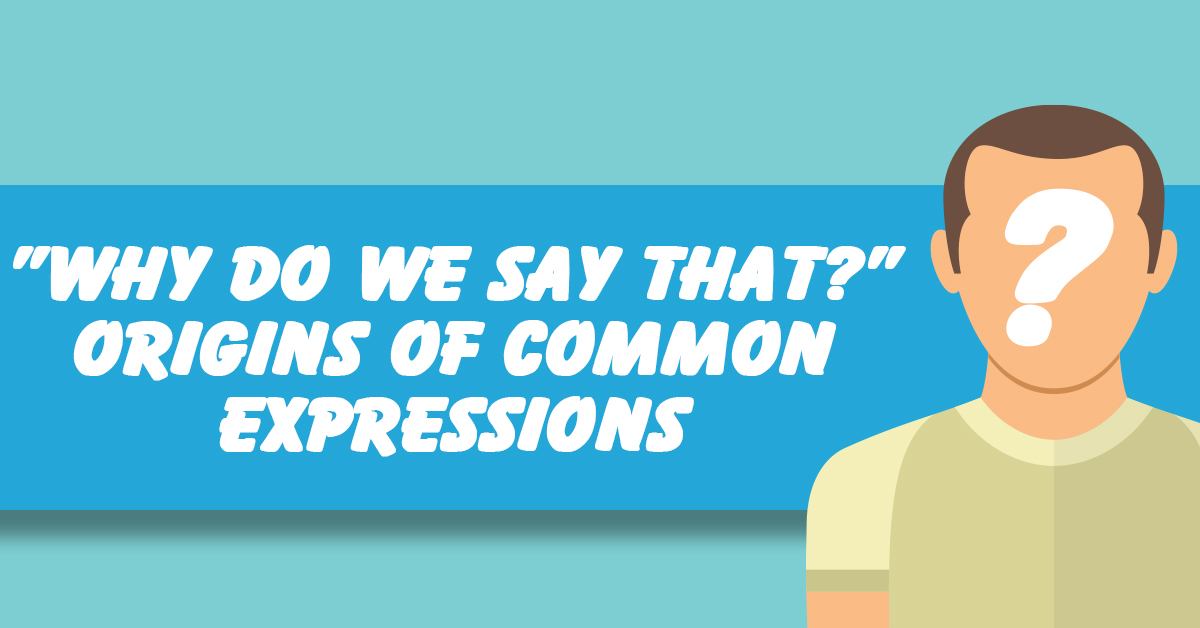“Why Do We Say That?” Origins of Common Expressions
“Why Do We Say That?” Origins of Common Expressions

“Why Do We Say That?” Origins of Common Expressions
We’ve all used common expressions without knowing their origins. Some are steeped in history, others in mere legend. If you ever wondered “Why do people say that?” this article is for you. Here are some origins for some common expressions.
“Butter Someone Up”
If you’ve ever heard or used the expression “butter someone up” to gain favor, the expression comes from the ancient Indian custom of throwing butter balls at the feet of the statues of their gods. It was a small form of sacrifice so it has been said that you “butter someone up” to gain approval or favor.
Giving Someone the Cold Shoulder
In medieval England, the way to let a guest know it was time to leave was by giving them a cold piece of meat from the shoulder of lamb, beef or pork. Providing a guest the “cold shoulder” was thought to be a polite way to say “It’s time for you to go.”
Let Your Hair Down
Most aristocratic women of medieval times kept their hair elegantly piled upon their heads. The only time it was acceptable to “Let their hair down” was when they were home among family. The term became to be associated with relaxing and being yourself.
Roll Up the Window
One of the newer common expressions is telling someone in a car to “roll up” or “roll down” a window. This comes from the old way in which car windows were propelled up and down through a rolling motion from a mechanical handle. Today, windows are moved up and down at the push of a button, and rarely rolled up and down. The expression, however, continues.
Living “High on the Hog”
The best cuts of pork are believed to be those “high on the hog”, or on the top portions of a pig. Those who could afford these prime cuts were considered well off and could live “high on the hog”.
Crocodile Tears
This originates from the belief that crocodiles tear up even when eating their prey. Thus the phrase “crocodile tears” means an insincere form of sorrow.
It can take generations to grow away from old expressions. Their meaning may be obscured by new technology or other advances, but It still can be interesting to look back to discover why we say the things we do.











